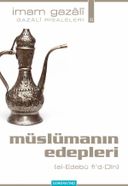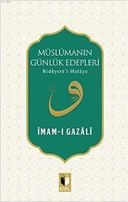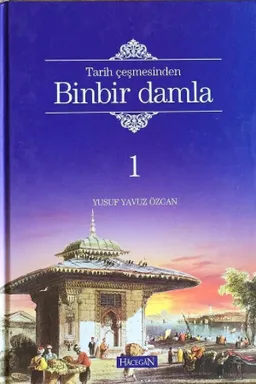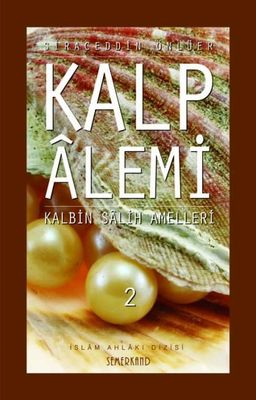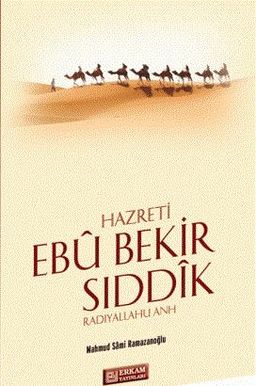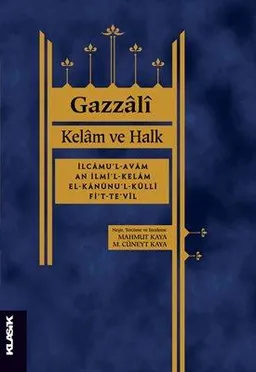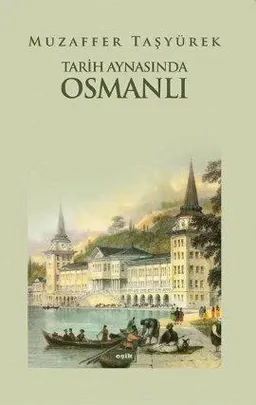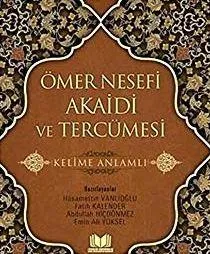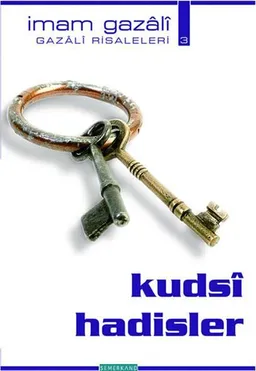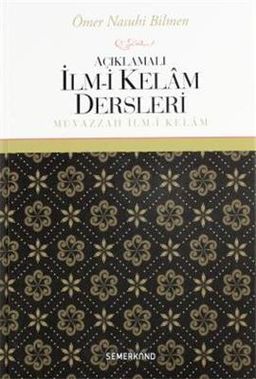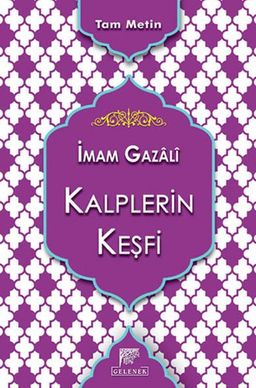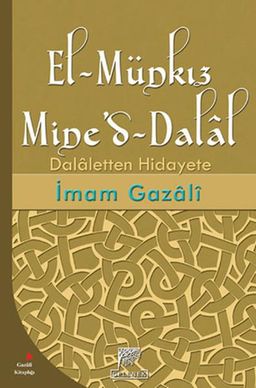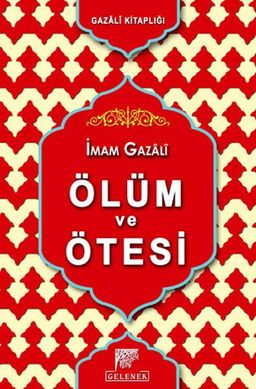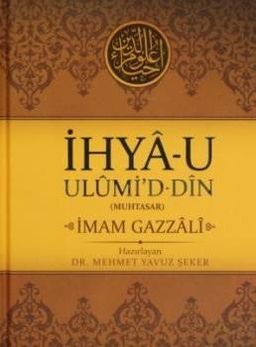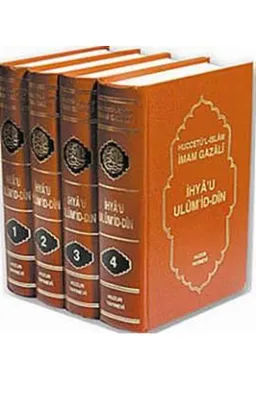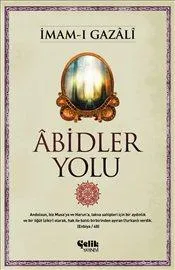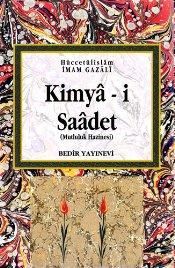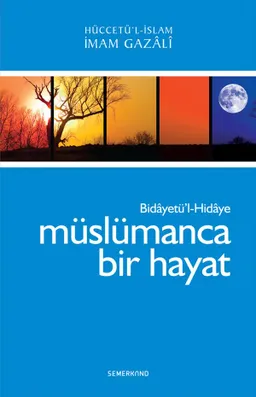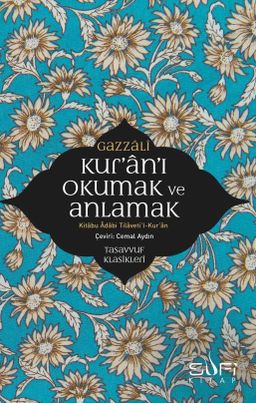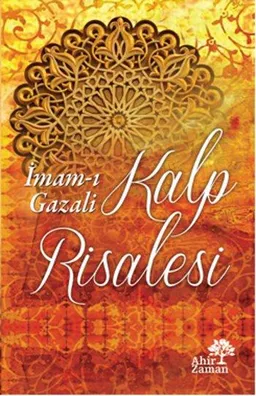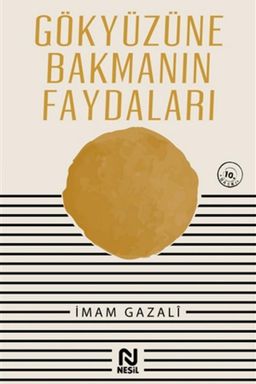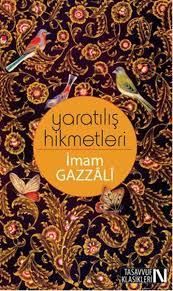About Müslümanın Edepleri
Müslümanın Edepleri subject, statistics, prices and more here.About
Her şeyi yoktan var eden, bize İslâm nimetini bahşeden ve âlemlere rahmet olarak gönderdiği Hz. Muhammed’e [sallallahu aleyhi vesellem] ümmet olmayı nasip eden Allah Teâlâ’ya sonsuz hamdü senâlar olsun.
Yaratılmışların en şereflisi Allah Resûlü’ne, onun şerefli âline, ashabına, onun miras olarak bıraktığı ilme, güzel ahlâka sahip çıkanlara ve onun izinden gidenlere salâtü selâm olsun.
Elinizdeki eser, İslâm âleminde yüzyıllardır "Hüccetü’l-İslâm” (İslâm’ın delili) lakabıyla tanınan rabbânî âlim ve büyük mutasavvıf İmam Gazâlî hazretlerine [rahmetullahi aleyh] aittir. O, hayatı, ilmî şahsiyeti, yazdığı eserler ve hizmetleriyle İslâm dinine birçok hizmette bulunmuş İslâm âlimlerden biridir.
Bu eser, hacmi küçük olmakla birlikte, içerdiği konular itibariyle oldukça kıymetlidir. Asıl adı el-Edebü fî’d-Dîn olan bu eseri, Arapça aslından Müslümanın Edepleri adıyla olabildiğince anlaşılır bir dille çevirmeye çalıştık. Eser üzerinde yer yer dipnot çalışması yaptık. İmam Gazâlî [rahmetullahi aleyh] Şâfiî mezhebine mensup bir âlim olduğu için ibadetlerle ilgili edepleri Şâfiî mezhebinin hükümlerine göre zikretmiştir; biz de gerekli bazı yerlerde Hanefî mezhebine göre bildirilen hükümleri dipnotta belirttik.
Eser, bir müslümanın Rabb’ine karşı kulluk âdâbından başlayarak günlük ibadetlerinde ve hayatında dikkat etmesi gereken edeplerden kısa ve öz olarak bahsetmektedir.
Yüce dinimiz bütün müslümanların güzel ahlâk ve edep sahibi olmalarını istemiş ve önemle bunun üzerinde durmuştur. Nitekim Peygamber Efendimiz [sallallahu aleyhi vesellem] şöyle buyurmuştur: "Müminlerin en faziletlisi, ahlâken en güzel olanıdır.” 1
Büyük âlim ve kâmil mürşid Mevlânâ Hâlid-i Bağdâdî [kuddise sırruhû] edep hakkında şöyle der:
"Edep hakikatte Allah Teâlâ tarafından ihsan edilen bir lutuftur. Çünkü her makamın kendine uygun bir edebi vardır. Bu edeplere riayet etmek için de sağlam bir himmete hatta ilhama ihtiyaç duyulur. Nitekim ‘Tasavvuf, bütünüyle edeptir’ denilmiştir.”
Ebû Hafs Haddâd hazretleri [kuddise sırruhû] ise şöyle der:
"Tasavvuf, tamamıyla edeplerden ibarettir. Her vaktin, halin ve makamın kendine göre bir edebi vardır. Her kim bu vakitlerdeki edeplere uymaya devam ederse Hak dostlarının ulaştığı makama ulaşır.”
Güzel ahlâk ve edep sahibi olmanın yolu, Allah [celle celâluhû] ve Resûlünün [sallallahu aleyhi vesellem], İslâm âlimlerinin bildirdiği edeplere, tavsiyelere ve nasihatlere uymaktan geçer. Nitekim Allah Teâlâ insanı edep ve güzel ahlâkı kazanmaya ehil olarak yaratmıştır. İşte bu eser, güzel ahlâk ve edep sahibi olmanın yolunu veciz bir şekilde bizlere bildirmekte ve bizleri edep sahibi olup dünya ve ahirette mutlu olmaya davet etmektedir.
Bu önemli eserin çevrilmesini bize nasip eden yüce Mevlâmız’a sonsuz şükürler olsun. Bu çalışmaya vesile olan değerli büyüklerimizden Allah razı olsun. Eserin hazırlanmasında ve okuyucularımıza sunulmasında yardımı olan ve emeği geçen herkese teşekkürü bir borç biliriz. Temennimiz bu çalışmanın herkes için faydalı olmasıdır. Çalışmak bizden, başarı ve hidayet Cenâb-ı Mevlâ’dandır.
Âlemlerin Rabb’i yüce Allah’a sonsuz hamdolsun.
Author: İmam Gazali
Translator: A. Suat Demirtaş
Estimated Reading Time: 3 hrs. 24 min.Page Number: 120Publication Date: 25 August 2011Publisher: Semerkand YayınlarıISBN: 9786054491605Country: TürkiyeLanguage: TürkçeFormat: Karton kapak
Book Statistics
Reader Profile of the Book
Kadın% 49.6
Erkek% 50.4
0-12 Yaş
13-17 Yaş
18-24 Yaş
25-34 Yaş
35-44 Yaş
45-54 Yaş
55-64 Yaş
65+ Yaş
About the Author
İmam GazaliYazar · 302 books
This text has been automatically translated from Turkish. Show Original
Gazzâlî (Persian: الغزّالی) (b. 1058, Tus - d. 18 December 1111, Tus), Islamic scholar, philosopher, mystic and professor of the Great Seljuk State period. The nicknames of Gazzâlî, who is thought to be of Persian origin, are Hüccetü'l-İslâm and Zeynüddîn. He is generally known by the names Gazzâlî and İmam-ı Gazzâlî.
Ghazali was born in Tus, Khorasan, in 450 Hijri (1058 Gregorian). He received his primary education from Ahmed bin Muhammed er-Razikânî in Tus, then he went to the city of Curcan and received education from Ebû Nasr el-İsmailî, and then he studied at Nishapur Nizamiye Madrasa until the age of 28. As a theological thought, he was educated by Ebu Nasr al-Ismaili. He was influenced by Hasan Ash'ari and Shafi'i in terms of practical views. When his teacher Abdülmelik el-Cüveynî, nicknamed Imam-ı Harameyn, died in 1085, he went to Nishapur to the vizier of the Great Seljuk State, Nizamülmülk. Proving his superiority over other scholars with the answers he gave in a meeting in the presence of Nizam al-Mulk, he was appointed as the chief professor of the Nizamiye Madrasa in Baghdad in 1091. Here, he quickly gained fame and respect with his knowledge and the student community he acquired. He turned to Sufism and concentrated on this field under the influence of Ebû Alî Farmedî. With this interest and his desire for pilgrimage, he left his duty at the madrasah, left Baghdad in 1095 and went to Damascus. After staying in Damascus for two years, he went on pilgrimage in 1097.
After the pilgrimage, he returned to Damascus and from there he went to Tus via Baghdad. During his stay in Damascus and Tus, he lived a private life and progressed in the field of Sufism. Eleven years after his departure from Baghdad, in 1106, upon the request of Nizamülmülk's son Fahrülmülk, he started to give education again in Nishapur Nizamiye Madrasa. After a short time, he returned to Tus and lived a Sufi life with his disciples in the lodge he had built. Ghazali died in 1111 (Hijri 505) in his birthplace, Tus, Iran.
During the time when Ghazali lived, there was a great political and intellectual chaos in the Islamic world. Although the power of the Abbasid caliphs in Baghdad was weakening, the borders of the Great Seljuk State were expanding and its influence was increasing. Melikşah's vizier, Nizamülmülk, was gaining victories in the battlefields and opening discussion environments called scientific assemblies and madrasahs. During this period, the Shiite-Fatimid dynasty was on the throne of Egypt. In Europe, the Andalusian Umayyad State was in decline.
The first Crusade was also carried out during the reign of Gazzali. When Gazzali was 40 years old, Antakya was besieged by the crusaders and a year later Jerusalem was captured. Hasan Sabbah and Ömer Hayyam are also well-known people who lived in the same age as Gazzali. An intellectual collapse completed this confusion in the Islamic world.
Ghazali's curiosity for learning caused him to research many religious and intellectual movements. He saw that during his time, people who wanted to find the truth were divided into four groups, and each of them sought the truth in their own way. These; philosophers, theologians, Sufis, esotericists. By examining all of their opinions; He criticized theology, philosophy and the path of Batinism in detail in his books and turned to Sufism, the path of the Sufis, and sought the truth on this path.
Books
Dil Belası
9.5/10
Kalplerin Keşfi
9.4/10
El-Münkız Mine'd-Dalal Dalale...
9.2/10
Ey Oğul
9.5/10
Ölüm ve Ötesi
9/10
İhya-u Ulumi'd-Din (Muhtasar )
9.5/10
İhyâ-u Ulumi'd-Din (4 Cilt Tak...
9.5/10
Abidler Yolu
9.2/10
Kimyâ-i Saâdet (Cilt 1 - 2)
9.2/10
Müslümanca Bir Hayat
9.3/10
Kur'an'ı Okumak ve Anlamak
9.4/10
Kalp Risalesi
9.4/10
Gökyüzüne Bakmanın Faydaları
9/10
Yaratılış Hikmetleri
8.7/10
Mişkatu'l Envar Nurlar Alemi
8.8/10
